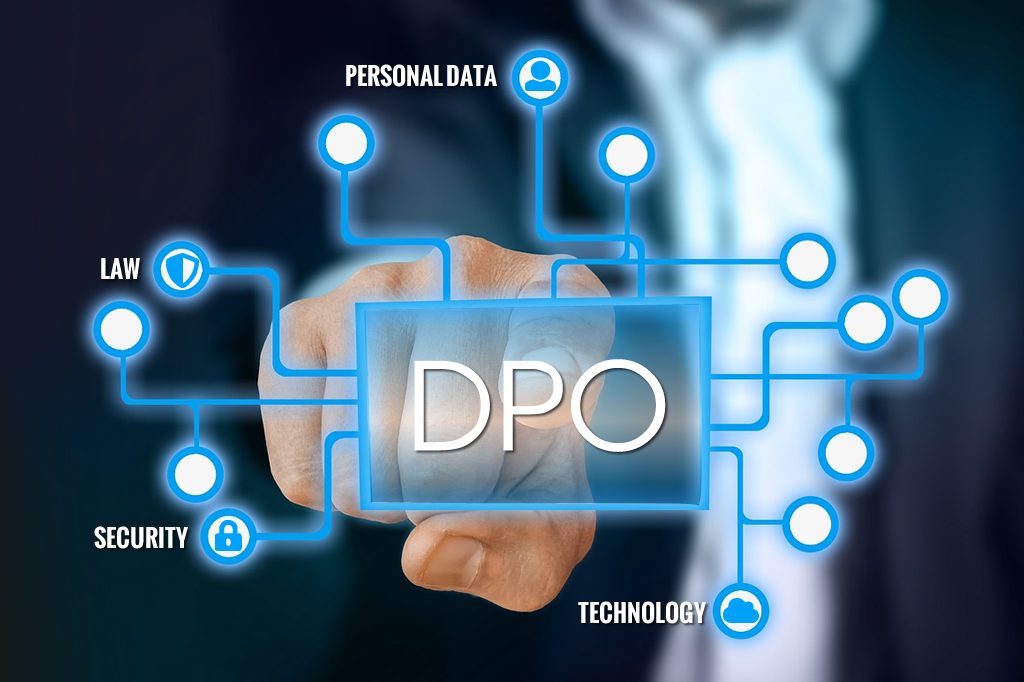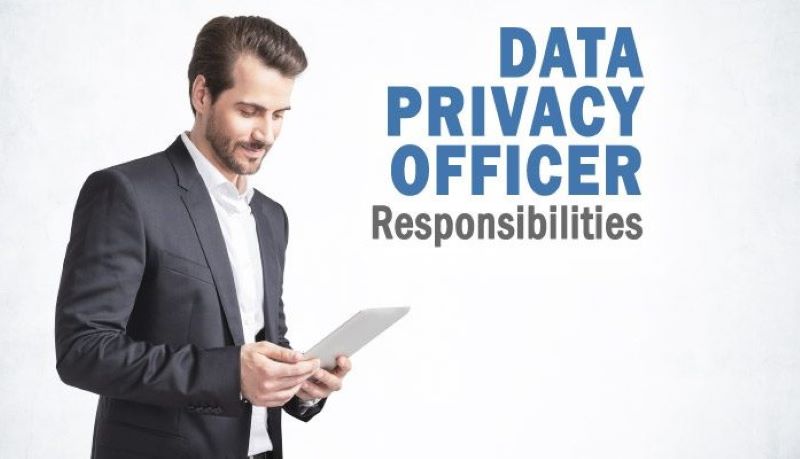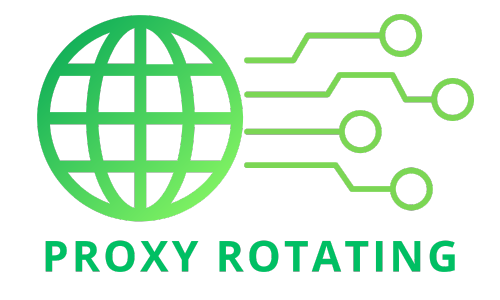Are you curious about what a Data Privacy Officer is? Discover this pivotal role’s responsibilities, significance, and critical functions in safeguarding sensitive information and ensuring compliance with data protection regulations. Please follow this article to know more!
Definition of Data Privacy Officer
What is a data privacy officer (DPO)? A DPO is a professional who oversees an organization’s data protection strategy and ensures compliance with data privacy laws and regulations. They manage data privacy policies, conduct risk assessments, and implement measures to protect sensitive information from unauthorized access or disclosure.

The Importance of a Data Privacy Officer
The role of a Data Privacy Officer (DPO) has become increasingly important in today’s data-driven world, where organizations collect, process, and store vast amounts of personal data. Here are several reasons why having a DPO is crucial:
Regulatory Compliance: With the proliferation of data protection regulations such as the General Data Protection Regulation (GDPR), California Consumer Privacy Act (CCPA), and others worldwide, organizations must ensure compliance with complex and evolving legal requirements. A DPO helps navigate these regulations, interprets legal obligations, and implements necessary measures to achieve compliance.
Risk Management: Data breaches and privacy violations can have severe financial, legal, and reputational consequences for organizations. A DPO plays a vital role in identifying, assessing, and mitigating risks associated with processing personal data, thereby safeguarding the organization against potential liabilities and damages.
Privacy by design: Incorporating privacy principles into the design and development of products, services, and business processes is essential for protecting individuals’ privacy rights. A DPO advocates for privacy by design principles, ensuring that data protection considerations are integrated into all product lifecycle stages.
Internal guidance and training: Educating employees about data protection responsibilities and best practices is critical for maintaining an organization’s strong culture of privacy. A DPO provides advice, training, and awareness programs to employees, contractors, and other stakeholders to promote compliance with data protection policies and procedures.

Data subject rights: Under data protection laws, data subjects have various rights, such as the right to access, rectify, and erase their data. A DPO serves as a point of contact for data subjects to exercise their rights and facilitates the organization’s timely and lawful response to data subject requests.
Incident response and breach management: A swift and effective response to a data breach or security incident is essential to minimize the impact and mitigate further harm. A DPO leads incident response efforts, coordinates with relevant stakeholders, and ensures timely notification to regulatory authorities and affected individuals, as required by law.
External communication and accountability: Building trust with customers, partners, and regulators requires transparent communication about data protection practices and compliance efforts. A DPO liaises with external stakeholders, demonstrating the organization’s commitment to data privacy and accountability.
Continuous improvement: Data protection is an ongoing process that requires regular assessment, monitoring, and improvement of privacy practices. A DPO oversees data protection audits, inspections, and reviews, identifying areas for enhancement and implementing corrective actions to strengthen the organization’s privacy posture over time.
In summary, a Data Privacy Officer is critical in ensuring that organizations meet their legal and ethical obligations regarding data protection, mitigate risks associated with data processing, and foster a culture of privacy and trust among stakeholders. Their expertise and guidance are invaluable in navigating the complex landscape of data privacy laws and regulations while promoting responsible data stewardship and accountability.

Which organizations require a Data Privacy Officer?
The requirement for a Data Privacy Officer (DPO) varies depending on an organization’s jurisdiction and specific circumstances. Generally, organizations that handle significant amounts of personal data or operate in regions with stringent data protection regulations are more likely to require a DPO. Here are some examples of organizations that may require a DPO:
- Public sector entities: Government agencies, ministries, and public authorities often deal with large volumes of personal data during their operations. Many data protection laws, such as the GDPR, mandate the appointment of a DPO for public sector bodies processing personal data.
- Large corporations: Multinational corporations, large enterprises, and conglomerates that collect and process substantial amounts of personal data across multiple jurisdictions will likely require a DPO to ensure compliance with data protection regulations.
- Healthcare organizations: Hospitals, clinics, medical practices, and healthcare providers handle sensitive personal health information, making them subject to stringent data protection requirements, such as the Health Insurance Portability and Accountability Act (HIPAA) in the United States. Healthcare organizations often appoint a DPO to oversee compliance with healthcare privacy regulations.
- Financial institutions: Banks, insurance companies, investment firms, and other financial institutions process vast amounts of personal and financial data, subjecting them to strict data protection regulations, such as the Gramm-Leach-Bliley Act (GLBA) in the United States. These organizations may require a DPO to ensure compliance with financial privacy laws.
- Technology companies: Technology companies, including software developers, cloud service providers, and social media platforms, collect and process extensive user data, subjecting them to data protection laws like the GDPR and CCPA. These organizations may appoint a DPO to oversee compliance with privacy regulations and address data protection challenges inherent in their business models.
- Educational institutions: Schools, universities, and educational organizations handle the personal data of students, faculty, and staff and must comply with data protection laws such as the Family Educational Rights and Privacy Act (FERPA) in the United States. Educational institutions may appoint a DPO to ensure compliance with student privacy regulations.
- Nonprofit organizations: Nonprofit organizations that collect and process personal data for fundraising, donor management, and program administration purposes may require a DPO to ensure compliance with data protection laws and regulations applicable to nonprofit entities.

Organizations must assess their specific data processing activities, legal obligations, and risk profiles to determine whether appointing a DPO is necessary. Even if not explicitly required by law, many organizations voluntarily appoint a DPO as part of their commitment to data protection and privacy best practices.
Responsibilities of a Data Privacy Officer
The responsibilities of a Data Privacy Officer (DPO) vary depending on the organization’s size, industry, and specific data processing activities. However, here are some typical responsibilities associated with the role of a DPO:
- Monitoring Compliance: The DPO ensures that the organization complies with applicable data protection laws, regulations, and internal policies. This includes overseeing data processing activities, conducting privacy impact assessments, and monitoring adherence to legal requirements such as the GDPR, CCPA, etc.
- Providing Guidance and Advice: The DPO serves as a primary point of contact and advisor on data protection matters for the organization, including management, employees, and third-party service providers. They guide data protection best practices, privacy requirements, and compliance strategies.
- Data Protection Policies and Procedures: The DPO develops, implements, and updates data protection policies, procedures, and guidelines to ensure that personal data is processed lawfully, fairly, and transparently. They collaborate with relevant stakeholders to establish privacy controls and safeguards throughout the organization.
- Privacy by Design and Default: The DPO promotes privacy by design and default principles, advocating for integrating data protection considerations into the design and development of products, services, and business processes. They work with cross-functional teams to embed privacy-enhancing technologies and practices into organizational practices.
- Training and Awareness: The DPO oversees privacy training and awareness programs for employees, contractors, and other stakeholders to ensure an understanding of data protection responsibilities and best practices. They provide training on privacy policies, data handling procedures, and regulatory requirements to foster a culture of privacy within the organization.
- Data Subject Rights: The DPO manages data subject rights requests, including requests for access, rectification, erasure, and data portability. They ensure data subjects’ rights are respected and exercised by applicable protection laws and regulations.
- Incident Response and Breach Management: In a data breach or security incident, the DPO leads the organization’s response efforts, coordinating with internal teams, legal counsel, and regulatory authorities as necessary. They oversee incident investigations, assess the impact of breaches, and implement remediation measures to mitigate risks and prevent future incidents.
- Regulatory Liaison: The DPO serves as a liaison with data protection authorities, regulatory agencies, and industry bodies on behalf of the organization. They communicate with regulators, respond to inquiries, and manage regulatory compliance assessments, audits, and inspections.
- Privacy Impact Assessments (PIAs): The DPO conducts privacy impact assessments to identify and evaluate the potential privacy risks associated with new projects, initiatives, or changes to existing processes. They recommend risk mitigation measures and ensure PIAs are conducted according to legal requirements.
- Audits and Monitoring: The DPO conducts regular audits and assessments of data protection practices, controls, and procedures to ensure ongoing compliance with regulatory requirements and organizational policies. They monitor privacy metrics, incident trends, and emerging privacy risks to address compliance gaps and vulnerabilities proactively.
Overall, the DPO is critical in promoting a culture of privacy and accountability within the organization. They ensure that personal data is handled responsibly and ethically and that it complies with legal requirements. They act as trusted advisors, advocates, and enablers of data protection, helping the organization build and maintain trust with customers, partners, and stakeholders.

Essential skills for an effective Data Privacy Officer
These skills are necessary for an effective Data Privacy Officer (DPO). Let’s expand on each one:
Understanding of IT and data management
A DPO should have a solid understanding of information technology (IT) systems and data management practices. This includes knowledge of data storage, processing, and transmission methods and familiarity with database management systems, network architecture, and cloud computing technologies.
Knowledge of data protection laws
A thorough understanding of data protection laws and regulations is crucial for a DPO to ensure compliance with legal requirements. This includes critical regulations such as the General Data Protection Regulation (GDPR), the California Consumer Privacy Act (CCPA), and other regional or industry-specific data protection laws.
Communication: Evangelize data protection
Practical communication skills are essential for a DPO to convey the importance of data protection principles and practices throughout the organization. This includes articulating complex legal and technical concepts clearly and understandably and engaging with stakeholders at all levels to promote a data protection culture.

Expertise in risk management
Risk management is central to the role of a DPO, who must identify, assess, and mitigate risks associated with processing personal data. This requires expertise in risk analysis methodologies and risk assessment techniques and the ability to prioritize risks based on their likelihood and potential impact on the organization.
Ethical decision-making
Ethical decision-making is paramount for a DPO, who must balance the organization’s business needs with the rights and interests of data subjects. This includes making decisions that uphold fairness, transparency, and respect for privacy while ensuring compliance with legal requirements and industry standards.
In addition to these skills, a successful DPO should possess qualities such as attention to detail, critical thinking, adaptability, and a commitment to continuous learning and professional development. By leveraging these skills and qualities, a DPO can effectively fulfill its role in safeguarding individuals’ privacy rights and promoting responsible data stewardship within the organization.
What are Data privacy officer roles?
Are you curious about the guardians of your data? Delve into the pivotal role of Data Privacy Officers (DPOs) as they navigate the complex landscape of data protection and privacy regulations. Discover the critical responsibilities entrusted to these essential guardians of sensitive information.
Monitor compliance
In their role, the Data Privacy Officer (DPO) supervises compliance with data protection regulations. This entails ensuring that the organization adheres to stringent data privacy laws such as the General Data Protection Regulation (GDPR) and other relevant regulations.
The DPO oversees the implementation of robust policies, procedures, and controls to safeguard sensitive data, conducts regular audits and assessments to identify compliance gaps, and guides the organization on adhering to legal requirements. By meticulously monitoring compliance efforts, the DPO plays a pivotal role in mitigating regulatory risks and upholding the trust and integrity of the organization’s data handling practices.
Consulting and training
The Data Privacy Officer (DPO) serves as a consultant and trainer, providing guidance and education on data privacy matters within the organization. They also offer expert advice to various departments on best practices for data handling and ensure compliance with relevant regulations and standards.
Additionally, the DPO conducts training sessions and workshops to raise employee awareness about the importance of data privacy and security. These initiatives help foster a culture of compliance and accountability throughout the organization, empowering staff to handle data responsibly and mitigate potential risks effectively. Through consulting and training efforts, the DPO plays a proactive role in enhancing the organization’s overall data protection posture and promoting a culture of privacy awareness.

Work in coordination with supervisory agencies
The Data Privacy Officer (DPO) collaborates closely with supervisory authorities to ensure regulatory compliance and address data protection issues effectively. They serve as the primary point of contact for supervisory authorities, facilitating communication and cooperation between the organization and regulatory bodies. The DPO assists in responding to inquiries, investigations, and audits conducted by supervisory authorities, providing necessary documentation and guidance.
Moreover, they stay abreast of regulatory developments and changes, liaising with supervisory authorities to understand and implement new requirements. By fostering a collaborative relationship with supervisory authorities, the DPO helps demonstrate the organization’s commitment to compliance and accountability, mitigating potential penalties and reputational risks associated with data privacy violations.
Manage data subject requests.
As part of their responsibilities, the Data Privacy Officer (DPO) manages data subject requests to ensure compliance with data protection regulations. This involves handling requests from individuals regarding their data, such as access requests, rectification requests, and requests for data erasure (“right to be forgotten”). The DPO coordinates with relevant departments to address these requests promptly and accurately, verifying the identity of the data subjects and providing them with the necessary information by legal requirements.
Additionally, the DPO maintains records of data subject requests and actions taken, ensuring transparency and accountability in the organization’s data processing activities. By effectively managing data subject requests, the DPO helps uphold individuals’ rights to privacy and data protection while safeguarding the organization’s legal and ethical obligations.
Set up and execute technical and organizational safeguards
In their role, the Data Privacy Officer (DPO) is tasked with establishing and implementing technical and organizational measures to ensure the security and protection of personal data. This involves assessing the organization’s data processing activities, identifying potential risks to data security, and developing policies, procedures, and controls to mitigate these risks. The DPO works closely with IT teams and other relevant stakeholders to implement encryption, access controls, and other security measures to safeguard personal data from unauthorized access, disclosure, alteration, or destruction.
Additionally, the DPO oversees the implementation of privacy-enhancing technologies and tools, such as anonymization and pseudonymization techniques, to minimize the risk of data breaches and enhance data privacy. They also conduct regular audits and assessments to evaluate the effectiveness of these measures and ensure ongoing compliance with data protection regulations.
Furthermore, the DPO provides guidance and support to the organization in adopting privacy by design and default principles, embedding data protection into the design and development of systems, products, and services from the outset.

In this article, we have discussed what a data privacy officer is and the crucial role of a Data Privacy Officer in safeguarding data and ensuring compliance with data protection regulations. We have highlighted the benefits of having a Data Privacy Officer for businesses, including enhanced compliance, improved reputation, and increased operational efficiency. This also emphasizes that the salary of a Data Privacy Officer can vary depending on various factors.
For detailed information and guidance on data-related issues and privacy rights, visit the Proxy Rotating website. Proxy Rotating provides valuable insights and advice to help you better understand concepts and practices in data protection.
>> See more:
Data privacy global conference
